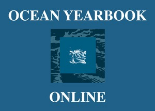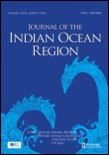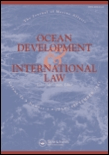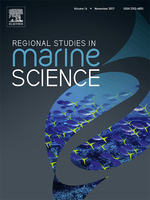
Ocean Yearbook
Scope & Guideline
Advancing Understanding of Maritime Challenges and Solutions
Introduction
Aims and Scopes
- International Law and Governance:
The journal consistently explores the legal frameworks governing ocean use, including the United Nations Convention on the Law of the Sea (UNCLOS) and other international treaties. It evaluates the implications of these laws on marine resources, environmental protection, and maritime boundaries. - Climate Change and Environmental Impact:
A central focus of the journal is the impact of climate change on ocean ecosystems and coastal states. It examines the legal and policy responses required to mitigate climate change effects, such as sea-level rise and ocean acidification. - Marine Biodiversity and Conservation:
The journal emphasizes the importance of marine biodiversity, particularly in areas beyond national jurisdiction. It publishes research on marine protected areas, sustainable fishing practices, and the governance of marine resources. - Technological Developments and Maritime Law:
The emergence of new technologies, such as autonomous vessels and marine spatial planning tools, is a significant theme. The journal discusses their implications for maritime law and governance. - Geopolitical Issues and Maritime Security:
The journal addresses geopolitical tensions related to maritime boundaries, security threats, and the legal frameworks that govern the use of oceans in conflict scenarios.
Trending and Emerging
- Ocean-Climate Nexus:
There is a growing emphasis on the interconnection between ocean health and climate change, as seen in discussions about the impacts of climate change on marine ecosystems and coastal communities. This theme is critical as it addresses urgent global environmental challenges. - Indigenous Rights and Ocean Governance:
Recent publications have increasingly addressed the role of indigenous peoples in ocean governance, including their rights and traditional knowledge. This trend highlights the importance of inclusive governance models that respect diverse perspectives. - Sustainable Development Goals (SDGs) and Marine Policy:
The integration of the SDGs into marine governance frameworks is emerging as a significant topic. The journal is increasingly linking ocean governance discussions to broader sustainability goals, emphasizing the need for holistic approaches. - Legal and Ethical Implications of Emerging Technologies:
With advancements in maritime technology, there is a rising focus on the legal and ethical implications of these developments, particularly regarding autonomous vessels and their regulation. - Global Governance Frameworks for Marine Resources:
The journal is increasingly exploring global governance frameworks, such as the High Seas Treaty and the BBNJ process, reflecting a shift towards multilateral approaches to managing shared ocean resources.
Declining or Waning
- Historical Perspectives on Maritime Law:
The journal has featured a number of historical analyses related to maritime law, but these have decreased in frequency. This shift suggests a move towards contemporary issues rather than historical context. - Regional Specificity in Ocean Governance:
There appears to be a waning focus on region-specific governance issues, as the journal increasingly addresses global frameworks and challenges. This trend may underplay the importance of localized governance models. - Traditional Fisheries Management Practices:
While fisheries management remains a topic of interest, discussions around traditional practices have become less frequent. This could indicate a shift towards more modern, technology-driven approaches to fisheries governance.
Similar Journals

International Journal of Marine and Coastal Law
Connecting Scholars and Practitioners in Coastal Legal DiscourseThe International Journal of Marine and Coastal Law, published by Martinus Nijhoff Publishers, is a leading academic periodical dedicated to the exploration of legal aspects related to marine and coastal environments. With a strong emphasis on interdisciplinary research, this journal serves as a vital resource for scholars, practitioners, and policymakers engaged in areas such as environmental science, oceanography, and law. Since its inception in 1986, the journal has continuously evolved to address contemporary challenges in the field, boasting a commendable Q2 ranking in Law and Q3 rankings across various relevant categories. The journal facilitates rigorous discourse on pressing issues, providing a platform for high-quality research that aims to inform legal frameworks and enhance sustainable practices. Although it does not offer open access, the journal’s impact extends to its notable Scopus rankings and its essential role in shaping legal discourse on marine and coastal management. Researchers and professionals will find invaluable insights and scholarly contributions that are crucial for advancing knowledge and policy in this critical area of study.

AFRICAN JOURNAL OF MARINE SCIENCE
Advancing knowledge of Africa's vibrant marine ecosystems.AFRICAN JOURNAL OF MARINE SCIENCE is a premier academic journal dedicated to advancing the field of aquatic sciences and ecological studies, published by Taylor & Francis Ltd. Established in 2003 and based in South Africa, this journal provides a vital platform for researchers, professionals, and students interested in the diverse and dynamic marine ecosystems of Africa. With an impressive impact factor reflected in its Q2 quartile ranking in both Aquatic Science and Ecology, Evolution, Behavior and Systematics categories, the journal showcases innovative research that addresses pressing environmental challenges. Open access options facilitate broad dissemination of knowledge, ensuring that cutting-edge findings are accessible to all stakeholders in the marine research community. As it converges towards its impressive milestone year of 2024, the AFRICAN JOURNAL OF MARINE SCIENCE serves as an essential resource for fostering scientific discourse and collaboration across the continent and beyond.

Oceans-Switzerland
Diving into the Science of Our OceansOceans-Switzerland, published by MDPI, is an esteemed open-access journal established in 2020, with a focus on providing a platform for the dissemination of high-quality research in the fields of Environmental Science and Oceanography. Based in the picturesque city of Basel, Switzerland, the journal seeks to foster a deeper understanding of oceanic processes and their implications for the environment through rigorous peer-reviewed articles. With an impact factor reflected in its 2023 Scopus rankings, placing it in the 56th percentile across its categories, Oceans-Switzerland continues to promote interdisciplinary collaboration and innovation, targeting a wide audience of researchers, professionals, and students keen on exploring the complexities of ocean systems. The journal's commitment to open-access policy ensures that groundbreaking research is available to a global audience, reinforcing its crucial role in advancing knowledge and shaping practices within the scientific community.

Maritime Studies
Bridging Disciplines in Maritime ResearchMaritime Studies is a premier journal published by Springer Heidelberg, focusing on interdisciplinary research in the fields of aquatic sciences, development, geography, and environmental management. With an ISSN of 1872-7859 and an E-ISSN of 2212-9790, the journal serves as a critical platform for the dissemination of innovative studies that advance our understanding of maritime environments and their socio-economic implications. The journal boasts an impressive Q2 ranking across multiple categories, including Aquatic Science and Geography, underscoring its significance in the academic community. With a commitment to fostering dialogue on maritime policy, management, and technological advancements, Maritime Studies is essential reading for researchers, policymakers, and students dedicated to promoting sustainable practices in ocean and waterway resource management. As this journal converges between 2012 to 2024, it continues to uphold the highest academic standards, facilitating impactful research that shapes the discourse in marine studies and beyond.

Journal of the Indian Ocean Region
Charting New Territories in Indian Ocean StudiesJournal of the Indian Ocean Region, published by Routledge Journals, Taylor & Francis Ltd, is a leading academic periodical that serves as a vital resource for scholars and practitioners interested in the diverse dynamics of the Indian Ocean region. With an ISSN of 1948-0881 and E-ISSN 1948-108X, this journal spans from 2010 to 2024, focusing on an interdisciplinary approach to management, monitoring, policy, law, and environmental science, ranked within the Q2 and Q3 quartiles of several categories, including Political Science and International Relations, Sociology, and Oceanography. Although not an Open Access journal, it remains a respected forum for high-quality research, with Scopus rankings reflecting its significance in the field: #210/706 in Political Science and International Relations and #500/1466 in Sociology and Political Science. The Journal of the Indian Ocean Region is crucial for engaging with the intricate socio-political and ecological challenges of the Indian Ocean, making it an essential read for academics, professionals, and students alike pursuing knowledge and innovation in this rapidly evolving area.

Ocean Science
Illuminating the Past and Present of Our SeasOcean Science, published by COPERNICUS GESELLSCHAFT MBH, stands as a premier Open Access journal in the fields of Oceanography and Paleontology, with a commendable impact factor that highlights its influence in the scientific community. Since its inception in 2005, Ocean Science has provided a vital platform for the dissemination of innovative research and discoveries, boasting prestigious rankings of Q1 in both Oceanography and Paleontology categories as of 2023, along with impressive Scopus rankings (7th in Paleontology and 28th in Oceanography). Based in Göttingen, Germany, the journal's commitment to open access ensures that groundbreaking research is readily available to a global audience, fostering knowledge sharing and collaboration among academics, professionals, and students alike. As it converges towards its 20th anniversary in 2024, Ocean Science continues to be an essential resource for those dedicated to advancing our understanding of the marine environment and its geological history.

OCEAN DEVELOPMENT AND INTERNATIONAL LAW
Innovating Policies for Ocean Development and ProtectionOCEAN DEVELOPMENT AND INTERNATIONAL LAW, published by Taylor & Francis Inc, is an esteemed journal dedicated to the interdisciplinary study of ocean governance, environmental law, and international relations concerning marine resources. With an ISSN of 0090-8320 and an E-ISSN of 1521-0642, this journal serves as a vital platform for researchers, legal scholars, and policymakers interested in the evolving challenges of ocean development in a globalized context. The journal has established itself as a resourceful publication, evidenced by its ranking in the 2023 Scopus categories, where it is positioned in the 75th percentile for Law and the 66th percentile for Political Science and International Relations. Operating for over four decades, from 1973 until 2024, it is pivotal for advancing knowledge and fostering dialogue on critical issues such as environmental sustainability, international maritime policies, and legal frameworks governing the seas. Despite being a subscription-based journal, OCEAN DEVELOPMENT AND INTERNATIONAL LAW remains influential, offering significant insights that contribute to the development of effective legal instruments and governance strategies for oceanic resources.

Indian Journal of Geo-Marine Sciences
Connecting Science and the Sea for a Sustainable FutureThe Indian Journal of Geo-Marine Sciences, published by the NATIONAL INSTITUTE OF SCIENCE COMMUNICATION & INFORMATICS (NISCAIR), serves as a vital platform dedicated to the dissemination and advancement of knowledge in the field of marine and geosciences. As an open-access journal, it allows for improved visibility and accessibility of research findings to a global audience, enabling researchers, professionals, and students to share insights into oceanography and related disciplines. With a publication history spanning from 2007 to 2010 and continuing from 2012 to 2024, it has established itself within the academic community as a reliable source of innovative research, despite being classified in Q4 of Oceanography and holding a Scopus rank that places it in the 27th percentile. This journal is particularly relevant for those investigating marine ecosystems, geological oceanography, and their interconnections, thus playing an essential role in fostering understanding and communication within this important area of scientific inquiry.

Regional Studies in Marine Science
Fostering Sustainable Practices through Marine StudiesRegional Studies in Marine Science, published by Elsevier, is a leading academic journal dedicated to advancing the understanding of marine ecosystems and their regional dynamics since its inception in 2015. With an ISSN of 2352-4855, this journal is indexed in Scopus and has achieved impressive ranking quartiles, notably Q2 in categories like Animal Science and Zoology, and Ecology, showcasing its relevance and impact in these fields. As of 2023, it ranks in the 79th percentile for Animal Science and Zoology, reflecting its significant contribution to academic discourse. While the journal operates under a traditional access model, its rigorous peer-review process ensures the publication of high-quality research that is crucial for understanding ecological interactions and fostering sustainable practices within marine environments. Researchers, professionals, and students alike will find this journal an invaluable resource for the latest findings and advancements in marine science, as it strives to bridge the gap between research and practical application at regional and global levels.

International Journal of Maritime Engineering
Advancing Knowledge for a Sustainable Ocean FutureThe International Journal of Maritime Engineering (ISSN: 1479-8751, E-ISSN: 1740-0716), published by UNIV BUCKINGHAM PRESS in the United Kingdom, is a vital resource for the maritime engineering community, addressing pressing issues in both Environmental Engineering and Ocean Engineering. Established in 2006, this journal serves as a platform for disseminating innovative research, technological advancements, and practical solutions that enhance the sustainability and efficiency of maritime operations. With its current classification in the Q3 quartile for both fields in 2023, it offers valuable insights to researchers, professionals, and students who seek to bridge theoretical knowledge with industry applications. Though the journal does not operate under an open access model, it remains an essential reference for academic discourse and advancement in maritime studies through its rigorous peer-review process and high-level research outputs.